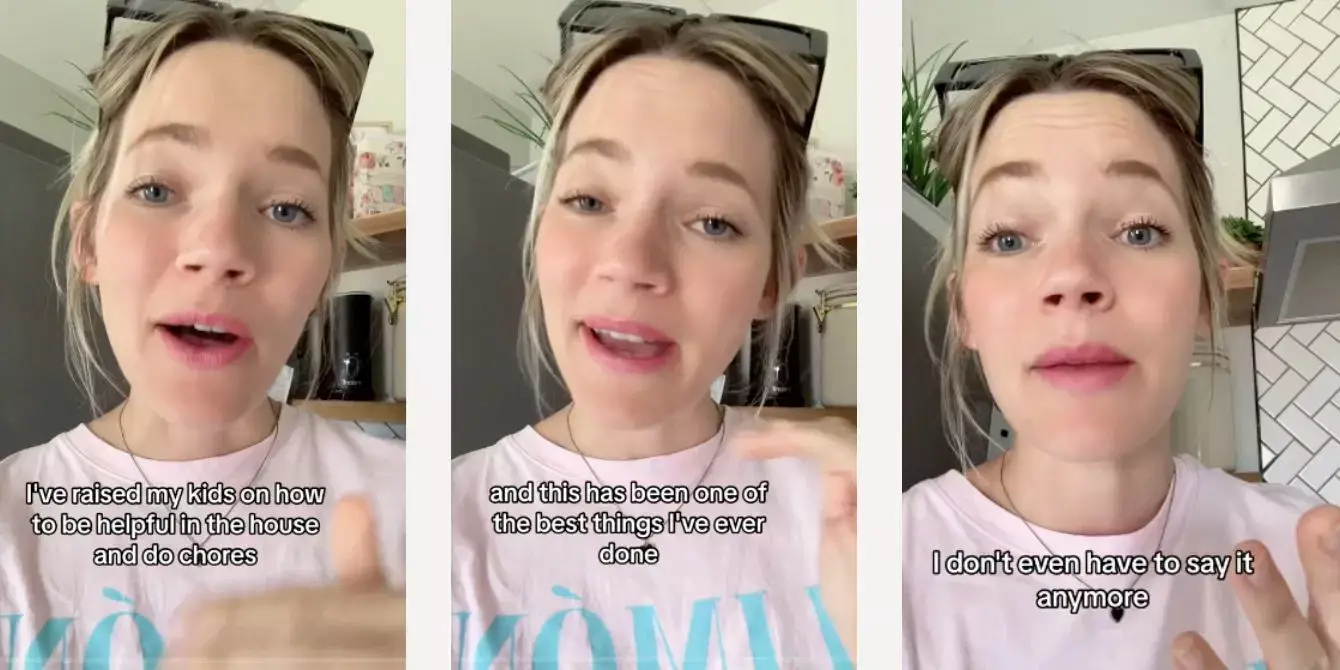In a world increasingly dominated by digital content, it’s refreshing to see parents turning to social media platforms like TikTok for positive parenting inspiration. One such example is Melissa Lea Hughes, whose engaging video on teaching toddlers to help with household chores has resonated with tens of thousands of viewers. With a straightforward approach, Hughes showcases how her young children, now five and six years old, learned to scrape food off their plates and place them in the sink. The emphasis on empowering children through responsibility not only piques interest but also encourages other parents to adopt similar practices in their households.
Hughes’ method underscores an essential truth about parenting: it is both an art and a science. By using simple chores as a teaching mechanism, she highlights how tasks can be integrated into everyday life in a manner that nurtures self-sufficiency and fosters a collaborative home environment. The success of her video, boasting over 166,000 likes, speaks to a collective yearning among parents for practical solutions to everyday challenges.
Child development experts agree that engaging children in age-appropriate chores can have profound effects on their growth. Starting at a young age, Hughes’ approach is well-aligned with developmental psychology principles, which advocate for specific instructions as a way to guide children effectively. For example, instead of giving vague commands like “clean your room,” a parent might direct their child to “put the toys in the bin and the books on the shelf.” This specificity breaks down daunting tasks into manageable parts, making it easier for children to participate without feeling overwhelmed.
Moreover, chores are not just about tidying up; they lay the foundation for essential life skills. From the simple act of scraping their plates to more complex tasks like helping with laundry as they grow older, these responsibilities instill a sense of competence and autonomy in children. Hughes echoes this sentiment, referencing the influence of the popular children’s show “Daniel Tiger,” which cleverly uses songs to prompt children to take action. Incorporating such joyful elements can transform chores from mundane obligations into fun, shared family moments.
The key to making chores enjoyable lies in creating an atmosphere where children feel both involved and appreciated. Hughes emphasizes that keeping the process fun and positive leads to a more harmonious home, free from chaos. Parents can harness this energy by using music, cheerful tones, and collaborative techniques. Instead of focusing on the work itself, it’s critical to celebrate the act of working together and the satisfaction that comes with accomplishing a shared goal.
Furthermore, while tangible rewards are often debated among parenting experts, motivating children through non-material incentives—like verbal praise or extra playtime—can be effective. The Child Mind Institute offers advice on setting clear expectations and reinforcing the idea that chores contribute to the smooth running of the household. Hughes approaches this by explaining tasks to her children in a relatable manner, connecting their actions to the overall family dynamic.
Emphasizing chores as vessels for teaching responsibility, Hughes captures an essential aspect of parenting: preparing children for their futures. When children learn how to manage their environments early on, they carry these skills into adulthood. Studies have shown that children who engage in household responsibilities tend to develop a stronger sense of self-discipline, accountability, and overall competence.
While Hughes doesn’t necessarily advocate for chore charts—a method that works for some families—she opens up space for varied approaches, inspiring others to find what resonates best in their homes. In collaborative parenting, there’s no one-size-fits-all solution; rather, it’s about adapting to each child’s unique temperament and interests.
Melissa Lea Hughes’ approach to engaging her toddlers in household chores not only makes practical sense but also supports their emotional and social development. By fostering a culture of responsibility through enjoyable tasks, parents can create a loving and focused environment that cultivates independence. As the saying goes, “It takes a village to raise a child,” and sharing these insights through platforms like TikTok serves as a reminder that we are all in this together, learning from one another as we navigate the challenging and rewarding journey of parenthood.

